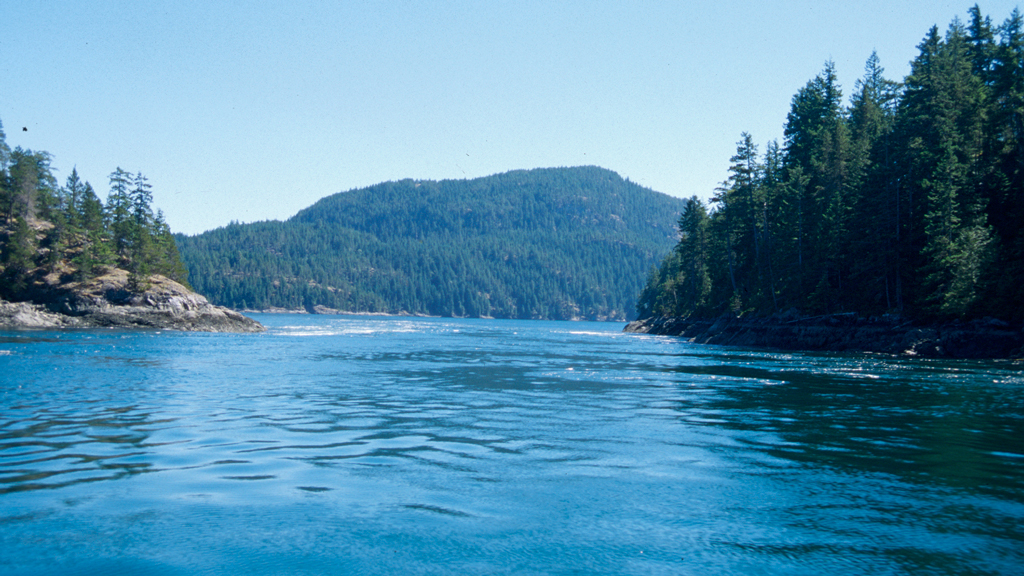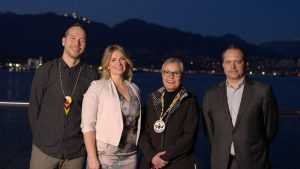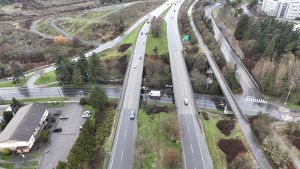CAPE MUDGE, B.C. — Environmental and cultural Guardians from the Nanwakolas Council’s six member First Nations are gathering in person for a week of specialized training with Indigenous, provincial and federal environmental experts.
The in-person meetings were on hold for two years due to the COVID-19 pandemic. The training in Cape Mudge includes strategies to better protect local ecosystems and cultural resources within their territories, where presently, only 20 young Guardians are on duty to monitor eight million acres on Northern Vancouver Island and the adjacent mainland south-central coast of the Great Bear Rainforest.
The Guardian programs of the individual nations (Mamalilikulla, Tlowitsis, Da’naxda’xw Awaetlala, Wei Wai Kai, Wei Wai Kum, and K’ómoks) are supported by the council’s Ha-ma-yas Stewardship Network, which aims to increase Indigenous stewardship capacity to ensure the effective management of cultural heritage resources, ecological values and economic development opportunities.
While Ha-ma-yas does not operate its own Guardian program, it works with each nation on their stewardship interests and focuses on regional issues like standardized training, monitoring and data collection, acquiring recognized compliance and enforcement powers, and finding funding to expand the Nation’s Guardian programs.
Nation Guardian program members are focusing on projects that their nation has identified as priorities, such as protecting cultural and ecological values, ensuring the Guardians are prepared for marine incidents on the water, participating in forest stewardship within the Great Bear Rainforest and old growth management on Vancouver Island.
These projects generate new information that is added to each nation’s database.
The council noted the monitoring and data collected is used by the nations in building their own inventory and repository of information that is used in decision-making and interactions with industry, government and other research/academic institutions.
This month’s meetings include specialized training on land and water provided by current Guardians, provincial natural resource officers, experts from the Hakai Institute, Canadian Coast Guard, Provincial Natural Resource Officers and the BC Institute of Technology.
Key topics of the gathering include bathymetry training (study of ocean, lake and river terrain), grizzly bear camera use, archeological survey methods, marine search and rescue, vessel towing, dockside booming, hypothermia treatment, compliance monitoring and enforcement networking.
“Our nations have ancestral responsibilities to take care of the lands, waters, wildlife and food sources for future generations,” said Dallas Smith, board president of the Nanwakolas Council, in a statement. “Our upcoming gathering plays an important role in ensuring the Guardians have the training and education they need, as well as professional standards, and a good understanding of data collection methodology so the data they collect is standardized and consistent for analysis and reporting.”
The council noted there is a growing need to increase the Guardians’ capacity to respond to environmental disasters such as the sinking and pollution caused by the Nathan E. Stewart tug/barge near Bella Bella in 2016, as well as the growing impacts of climate change-related disasters such as heat domes, forest fires and floods.
“The Guardians are the eyes and ears of our nations in this vast territory, and they know more about our land than anyone,” said Smith. “The integration of western sciences with Indigenous knowledge based on thousands of years of environmental stewardship greatly enhances our ability to monitor the land and prepare and respond to the effects of climate change.”











Recent Comments
comments for this post are closed